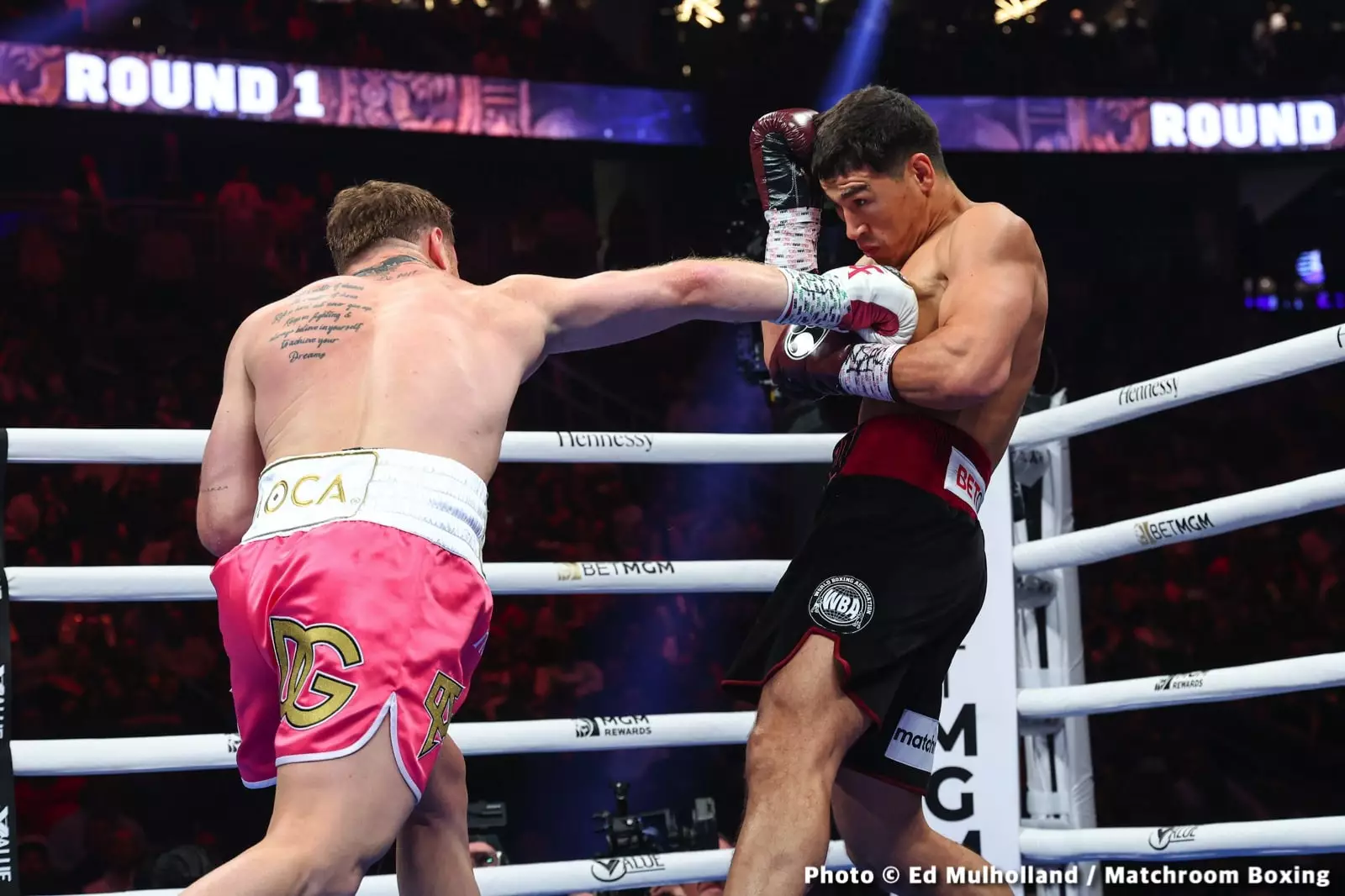Canelo Alvarez, the renowned Mexican boxer, stands at a pivotal crossroads in his illustrious career. His keen strategy seems increasingly focused on maneuvering around potential landmines in pursuit of the unified light heavyweight title. Recent developments reveal that Alvarez is targeting a rematch against Dmitry Bivol as his next big fight, contingent on a successful outing against Artur Beterbiev, a formidable opponent known for his knockout prowess. Beterbiev, who boasts an unblemished record of 20-0 with all victories coming by way of knockout, poses a significant threat to Bivol in their upcoming showdown on October 12. Should Beterbiev emerge victorious, it might derail Alvarez’s aspirations of clinching the undisputed light heavyweight championship on Cinco de Mayo.
A Calculated Risk: Canelo’s Choice of Opponents
Canelo’s approach raises questions about bravery versus strategic avoidance. While the astute boxer might relish the challenge of facing Beterbiev, known for his ferocity, Alvarez appears intent on engaging with Bivol, a fundamentally contrasting style characterized by technical boxing skills rather than brute strength. This preference highlights Canelo’s inclination to strategize his matches in a manner more reminiscent of a chess player than a gladiator. Critics have pointed out that this isn’t the first time Alvarez has chosen a path of least resistance; notably, he opted for the aging Sergey Kovalev in 2019 instead of confronting Beterbiev. By taking on Bivol previously, he avoided the potential risks associated with fighting a raw knockout artist.
Adding to the intrigue is the looming presence of David Benavidez, a potent contender with an undefeated record of 29-0 and 24 knockouts. Benavidez has long been eyeing the winner of the Bivol-Beterbiev clash, anticipating a lucrative opportunity to challenge for the title. However, Canelo’s ambitions may siphon that chance away, complicating the landscape further. The equations of boxing often leave contenders like Benavidez hungry yet frustrated, as their title aspirations are sometimes overshadowed by the strategic choices of more established champions like Alvarez.
Bivol is trapped in a strategic quandary of his own. After handing Canelo a notable defeat in 2022, he seems entitled to demand a rematch, particularly if he overcomes Beterbiev. Although the allure of a rematch against Alvarez appears tempting, the financial appeal of a second bout with Beterbiev — assuming their upcoming fight is competitive — cannot be overlooked. Fan interest in such a matchup could lead to significant monetary gains. These decision-making dilemmas illustrate the multilayered politics of the boxing world, where financial incentives often play a pivotal role in determining matchups.
Alvarez’s tactics seem to pivot around a calculated risk-reward scenario. While the desires of fans and the integrity of athletic competition may beckon him to confront Beterbiev for the opportunity to solidify his legacy further, his choices suggest a prioritization of business decisions over outright challenges. Bivol himself remains a wildcard, caught between potential high-stakes rematches while weighing his own desire for financial security and legacy. It begs the question: will Canelo’s affinity for strategically chosen opponents ultimately hinder his legacy, or will he emerge victorious, etching his name deeper into the annals of boxing history?
As the boxing landscape continues to evolve, watching Canelo Alvarez engage in this tactical game of chess serves as a compelling allegory for his career. Whether he manages to sidestep potential pitfalls like Beterbiev while securing his desired rematch with Bivol remains to be seen. The implications of these choices will resonate not just for Alvarez but also for his challengers and the boxing community at large. The forthcoming matches are pivotal, promising intrigue and spectacle that may define the future trajectories of all parties involved.

